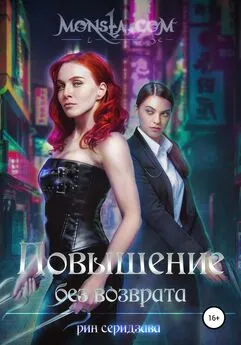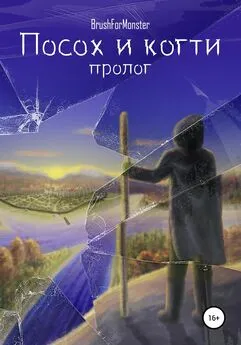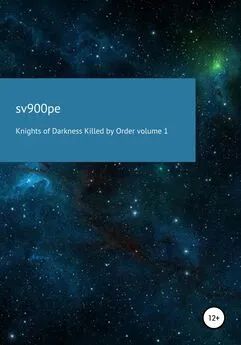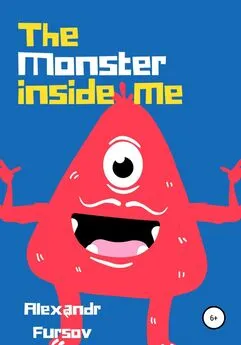Mons Kallentoft - Autumn Killing
- Название:Autumn Killing
- Автор:
- Жанр:
- Издательство:неизвестно
- Год:неизвестен
- ISBN:нет данных
- Рейтинг:
- Избранное:Добавить в избранное
-
Отзывы:
-
Ваша оценка:
Mons Kallentoft - Autumn Killing краткое содержание
Autumn Killing - читать онлайн бесплатно полную версию (весь текст целиком)
Интервал:
Закладка:
Nothing but mundane reality out there now.
Clouds.
Weeks, weeks of different shades of grey over her head, no blue in sight. Record rainfall, and television weather forecasters talking about a flood of biblical proportions.
She found the bottle at the back of the cupboard above the microwave. She knew those buttoned-up religious types wouldn’t so much as have sniffed at it. So she had left it there, consciously or unconsciously, for future use.
She drinks straight from the bottle.
Who gives a damn if she’s hungover tomorrow? It’s been a quiet autumn since she caught the father and brother who planned and carried out the murder of their daughter, their sister. She’d had a Swedish boyfriend. And that was enough.
Vomit.
Sometimes it can actually be nice to be hungover. I’ll have to get to grips with everything tomorrow, get my things from Janne. Isn’t he on duty, so I won’t have to see him? I’ll bring Tove’s things. Talk to her about moving back in.
I’m drunk, Malin thinks, and it’s nice.
3
Mum.
You’re so angry, Tove thinks, as she pulls the covers over her head and listens to the rain clattering on the roof, hard and fierce, as if there were an impatient god up there drumming millions of long fingers.
The room smells of the country. She was just looking at the rag-rugs, resting like flattened snakes on the floor, their pattern like a beautiful series of black-and-white pictures that no one will ever be able to interpret.
I know, Mum, Tove thinks. I know you blame yourself for what happened last summer, and that you think I’m bottling up all sorts of things. But I don’t want to talk to a psychologist, I don’t want to sit there babbling opposite some old lady. I’ve been chatting to other people on trauma.com instead. In English. It’s as if it all gets easier when I see my own clumsy words about what happened, and about how scared I was then. The words take the fear away, Mum, I’ve only got the images left, but the images can’t get me.
You have to look forward, Mum. Maybe you think I haven’t seen you drinking. That I don’t know where you hide the bottles around the house, that I don’t notice that your breath smells of alcohol behind the mask of chewing-gum. Do you think I’m stupid, or what?
She and Janne had remained at the kitchen table when Malin disappeared with all her rage.
Janne had said: ‘I hope she doesn’t crash the car and kill herself. Should I call the police? Or go after her? What do you think, Tove?’
And she hadn’t known what to say. Most of all she wanted her mum to come back, to rush into the kitchen in her very best mood, but things like that only happened in bad books and films.
‘I don’t know,’ she had said. ‘I’ve no idea.’
And her stomach had been aching, as far as her chest, a black pressure that wouldn’t let up, and Janne had made sandwiches, had told her things would sort themselves out once her mum had calmed down.
‘Can’t you go after her?’
And Janne had looked at her, then simply shaken his head in response. And the ache had found its way up into her heart and head and eyes, and she had to struggle to hold back the tears.
‘It’s OK to cry,’ Janne said, sitting down beside her and holding her. ‘It’s awful. It’s awful, because no one wanted it to turn out like this.’
‘It’s OK to cry,’ he had said again. ‘I’m going to.’
How can I help you, Mum? Because no matter what I say it’s like you’re not listening, don’t want to listen, like you’re trapped in an autumn river full of dirty torrential water and you’ve made up your mind to float off into the darkness.
I can see you in the kitchen, on your way to work, in the mornings, on the sofa in front of the television, or with all your files about that Maria woman.
And I want to ask you how you are, because I can see you’re feeling bad, but I’m scared you’d just be angry. You’re completely shut off, Mum, and I don’t know how to get you to open up.
And there’s so much else that I’d rather think about: school, my books, all my friends, all the fun stuff that I feel I’m just at the start of. All the boys.
Tove pulls the covers down. The room is there again.
The ache in her stomach, her heart, is still there. But for me it’s quite natural that you don’t live together, you and Dad. And there’ll be more fighting. Because I don’t think you’re coming back here, and I don’t know if I want to live with you now.
A crow has landed on the windowsill. It looks in at her. It pecks at the glass before flying off into the night.
The room is dark.
‘I’ll be fine,’ Tove thinks. ‘I’ll be fine.’
Janne is lying in bed with one of the bedside lamps on. He’s reading a folder from the British Armed Forces. It’s about building latrines, and it helps him to find his way into his memories, to Bosnia, Rwanda and Sudan, where he most recently constructed latrines in a refugee camp. The memories from his time in the Rescue Services Agency mean that he can avoid thinking about what happened this evening, about what has happened, and now must happen.
But the images, black and white in his memory, of people in desperate need in distant corners of the planet, are constantly shoved aside by Malin’s face, her red, puffy, tired, alcoholic’s face.
He confronted her several times. And she evaded the issue. Yelled at him when he poured away the drink from the bottles she’d stashed away, screaming at him that it was pointless, because she still had ten bottles hidden in places he’d never find.
He pleaded with her to see someone, a psychiatrist, a therapist, anyone at all. He had even spoken to her boss, Sven Sjoman, telling him that Malin was drinking more and more, but that it might not be visible at work, and asking him to do something. Sven had promised that something would be done. That conversation had taken place in August, but nothing had happened yet.
Her rage. Against herself. Presumably because of what happened to Tove. She refused to accept that it wasn’t her fault, that there is evil everywhere, always, and that anyone can get in its way.
It’s as if her stubbornness has led her in the wrong direction. That she’s absolutely committed to driving herself as far down as she can go.
And tonight she hit him. She’s never done that before.
Dig deep. Dig deep .
Regular check-ups. Bacteria sanitation.
Janne throws the files across the room. Turns out the light.
It was pretty stupid, really, he thinks. To imagine that a bloody terrible experience could make us work together as a family. As if evil could be a catalyst for good. In truth the complete damn opposite has happened.
Then he looks at Malin’s side of the bed. Reaches out his hand, but there’s no one there.
4
Sleepless dawn.
Axel Fagelsjo is about to get up from his leather armchair, but first he rubs his fingers over the worn, shiny armrest and stubs out his cigarette in the ashtray on the leather-topped sideboard. Then he lets his legs take the weight of his heavy yet still strong seventy-year-old body and pulls in his stomach, feeling strangely powerful, as if there were some enemy outside the door that he needs to fight with one of the many hunting rifles in the cabinet over in the apartment’s master bedroom.
Axel stands in the sitting room. He sees Linkoping wake up outside the windows, imagines its inhabitants in their beds, all those people with their different lives. Anyone who says there’s no difference between people doesn’t know what they’re talking about.
The trees in the Horticultural Society Park, their crowns blown this way and that by the wind. Only gentle rain now. Not the sort of downpour that drives the rats out of the sewers. That’s happened several times this autumn. And the city’s pampered middle classes have been horrified by the beasts nurtured in subterranean Linkoping. As if they refuse to accept that there are rats living beneath their well-shod feet. Rats with hairless tails and razor-sharp teeth, rats that will still be there long after they themselves are gone.
It’s been a long time since he slept through the night. He has to get up at least three times to go to the toilet, and even then he has to stand there for five minutes before releasing the little trickle that made him so incredibly desperate to go.
But he doesn’t complain. There are people with far worse ailments than him.
He misses Bettina when he wakes up at night. Only an empty white bed where she was always contours, warmth and breath. As luck would have it, she went before the catastrophe, before Skogsa slid out of his grasp.
The castle was at its most beautiful on mornings like this.
He can see the castle within him, as though he were standing in front of it, at the edge of the forest.
The seventeenth-century grey stone walls seem to rise up from the fog, more potent than nature itself.
Skogsa Castle. Constructed and altered over the years according to the eccentric whims of his ancestors.
The copper roof seems to glow even when the sky is covered by low cloud, and the countless eyes of the building, the old castle’s loopholes and the more recent lead windows. He has always imagined that the loopholes were watching him from a distant moment in history, measuring him against his predecessors as master of the castle. The new windows are blind by comparison, as if looking for something lost.
From this viewpoint in his memory he can’t see the chapel, but it’s there. Bettina isn’t there, however — she had wanted him to spread her ashes in the forest at the north of the estate.
He can hear them.
The fish splashing uneasily in the black water of the moat, maybe the dead Russian soldiers, the hungry, walled-in spirits, are nipping at their gills.
Count Erik Fagelsjo.
A robber baron during the Thirty Years War. A favourite of Gustav II Adolf, the most brutal warrior of all, said to have mutilated twenty men in one day during the skirmishes following the Battle of Lutzen. Count Axel Fagelsjo thinks: I have always felt that man’s blood flowing through my veins.
In his youth he wanted to serve with the UN. But his father said no. His father, the friend of Germany, the colonel who had gone around Prussia in the thirties fawning over the blackshirts, the castle-owner who believed in a German victory long into the early 1940s.
And now?
After what had happened.
Count Erik Fagelsjo must be spinning with shame in the family vault in the chapel at Skogsa, lying there naked and shrieking with utter fury.
But there’s still a chance, if it weren’t for that useless dandy, that bastard who came slithering down from Stockholm like a legless lizard.
Axel Fagelsjo looks out across the park again. Sometimes this autumn he has imagined he can see a man under the trees, a man who seemed to be peering up at his windows.
Sometimes he’s thought it was Bettina.
He talks to her every day, has done since she died three years ago. Sometimes he goes out to the forest where he scattered her ashes, hiking there no matter what time of year, most recently through mouldering fiery yellow leaves and swaying mushrooms, his dark voice like an echo between the trees, trees that seemed almost rootless, floating.
Bettina.
Are you there? I never thought you’d go first. I miss you, you know. I don’t think anyone knows, not even the children, how much I love you, loved you.
And you answer. I can hear you telling me that I must be strong, not show what I feel, you see what happens if you give in. Axel, the wind whispers, and the wind is your voice, your breath against my neck.
Читать дальшеИнтервал:
Закладка:
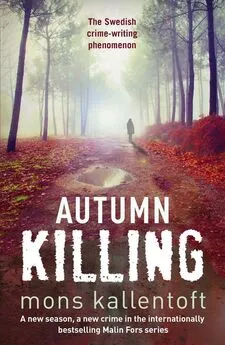

![Альфред Ван Вогт - Чудовище / The Monster [= Пятый вид: Загадочное чудовище; Воскресшее чудовище; Возрождение]](/books/155614/alfred-van-vogt-chudoviche-the-monster-pyatyj-v.webp)


